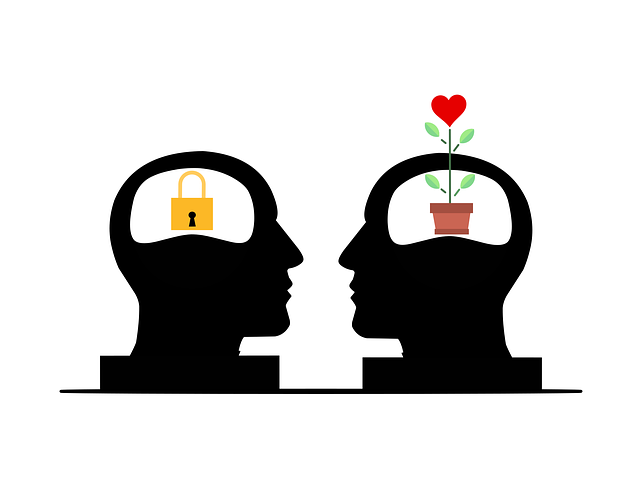Chronic pain and illness significantly impact an individual's life, often leading to emotional struggles like anxiety and depression. Psychologists specializing in this field offer holistic support, addressing both physical symptoms and mental health. They utilize techniques such as CBT, mindfulness, and relaxation strategies to help clients manage stress, develop resilience, and change negative thought patterns related to their conditions. Through therapy, individuals gain coping mechanisms, enhance well-being, and regain control over their pain experience, ultimately improving their quality of life. Social support and a collaborative approach with healthcare professionals are also emphasized in this holistic management strategy.
Chronic pain and illness can significantly impact an individual’s quality of life, but support is available. Psychologists play a vital role in managing these conditions by addressing the mind-body connection. This article explores various therapeutic approaches, including Cognitive Behavioral Therapy (CBT), building resilience, and the power of supportive relationships. We delve into holistic strategies that integrate mental and physical health care, offering practical insights for those seeking relief and improved well-being with the guidance of a psychologist.
- Understanding Chronic Pain and Illness: A Psychologist's Perspective
- The Mind-Body Connection: How Psychology Can Help
- Cognitive Behavioral Therapy (CBT) for Chronic Pain Management
- Building Resilience: Coping Strategies for Long-Term Illness
- Supportive Relationships: Navigating the Importance of Social Connections
- Holistic Approaches: Integrating Mental and Physical Health Care
Understanding Chronic Pain and Illness: A Psychologist's Perspective

Chronic pain and illness are complex conditions that significantly impact an individual’s quality of life. As a psychologist specializing in this area, I often explore the intricate relationship between physical discomfort and mental well-being. Many people suffering from chronic pain or long-term illness also face emotional challenges, such as anxiety, depression, or even fear, which can intensify their overall experience. Understanding these conditions from a psychological perspective is vital to providing holistic support.
My approach involves helping clients navigate the emotional landscape surrounding their physical struggles. Through therapy sessions, we work together to identify and challenge negative thought patterns and beliefs that may be exacerbating pain or illness-related distress. By fostering resilience and developing coping strategies, individuals can better manage their symptoms and improve their overall sense of control and well-being. This personalized support is crucial in empowering people to take charge of their health journey.
The Mind-Body Connection: How Psychology Can Help

Chronic pain and illness can significantly impact an individual’s mental health, creating a complex interplay between the mind and body. This is where a psychologist plays a pivotal role in addressing not just the physical symptoms but also the emotional and psychological aspects of managing these conditions. By understanding the mind-body connection, psychologists offer valuable support to help individuals cope with chronic pain and illness.
Psychological interventions provide tools to manage stress, anxiety, and depression, which are often exacerbated by ongoing health issues. Therapies like cognitive behavioral therapy (CBT) can help patients reframe negative thoughts and behaviors, promoting a more positive mindset. Additionally, psychologists teach mindfulness techniques and relaxation strategies to reduce the impact of pain and improve overall well-being. These approaches empower individuals to take an active role in their healing process, fostering resilience and a sense of control over their lives.
Cognitive Behavioral Therapy (CBT) for Chronic Pain Management

Chronic pain can significantly impact a person’s daily life and emotional well-being, making it crucial to seek effective management strategies. One such evidence-based approach is Cognitive Behavioral Therapy (CBT). CBT helps individuals identify and change negative thought patterns associated with their pain, allowing them to develop healthier coping mechanisms. By challenging unhelpful beliefs and behaviors, this therapy empowers patients to take control of their pain experience instead of letting it control their lives.
A psychologist specializing in CBT for chronic pain management can guide clients through specific techniques tailored to their needs. This may include learning relaxation strategies, modifying behaviors that exacerbate pain, and developing a more adaptive mindset. Through regular sessions, individuals gain valuable tools to navigate pain crises, improve overall quality of life, and foster a greater sense of resilience.
Building Resilience: Coping Strategies for Long-Term Illness

When facing chronic pain or a long-term illness, building resilience is crucial for managing symptoms and maintaining quality of life. A psychologist can play a vital role in this process by teaching effective coping strategies tailored to each individual’s unique challenges. Through therapy sessions, patients learn to navigate their conditions, embracing a growth mindset that fosters adaptability and strength amidst adversity.
Resilience-building involves developing healthy habits, such as stress management techniques, regular exercise (within comfort levels), and maintaining social connections. Psychologists guide individuals in identifying negative thought patterns and replacing them with positive affirmations, empowering patients to take control of their mental well-being. By integrating these coping mechanisms into daily routines, individuals can enhance their ability to endure and thrive despite the challenges posed by chronic pain or illness.
Supportive Relationships: Navigating the Importance of Social Connections

When living with chronic pain or illness, supportive relationships can be a game-changer. A psychologist can help individuals navigate and strengthen their social connections, which are vital for managing these conditions effectively. Social support acts as a buffer against stress, providing emotional comfort and practical assistance during challenging times.
Having a strong network of family, friends, or support groups allows individuals to share experiences, offer encouragement, and provide practical help with tasks made more difficult by their health condition. This interconnectedness can foster a sense of belonging and enhance overall well-being, playing a crucial role in the psychologist’s holistic approach to chronic pain and illness management.
Holistic Approaches: Integrating Mental and Physical Health Care

Chronic pain and illness management often requires a holistic approach that integrates mental and physical healthcare. Many traditional treatment plans primarily focus on addressing the physical symptoms, but they may overlook the profound impact of mental health on overall well-being. A psychologist specializing in this field can play a vital role in supporting individuals by helping them develop coping strategies to manage pain and illness more effectively. They work collaboratively with other healthcare professionals to provide comprehensive care that considers both the mind and body.
This integrated approach includes various techniques such as cognitive-behavioral therapy, mindfulness practices, and stress management strategies. By addressing psychological aspects like anxiety, depression, and stress, which are commonly associated with chronic pain, a psychologist enables individuals to foster resilience and improve their quality of life. This holistic perspective recognizes that mental health is intrinsically linked to physical health, ensuring a more balanced and successful management strategy for those navigating the challenges of chronic conditions.
Chronic pain and illness can be daunting, but with the right support, management is achievable. A psychologist plays a vital role in navigating these challenges by addressing the mind-body connection, offering evidence-based therapies like CBT, and fostering resilience through coping strategies. By integrating mental and physical health care and prioritizing supportive relationships, individuals can enhance their overall well-being. Seeking help from a psychologist is a significant step towards transforming chronic pain and illness into manageable conditions, allowing for a higher quality of life.



